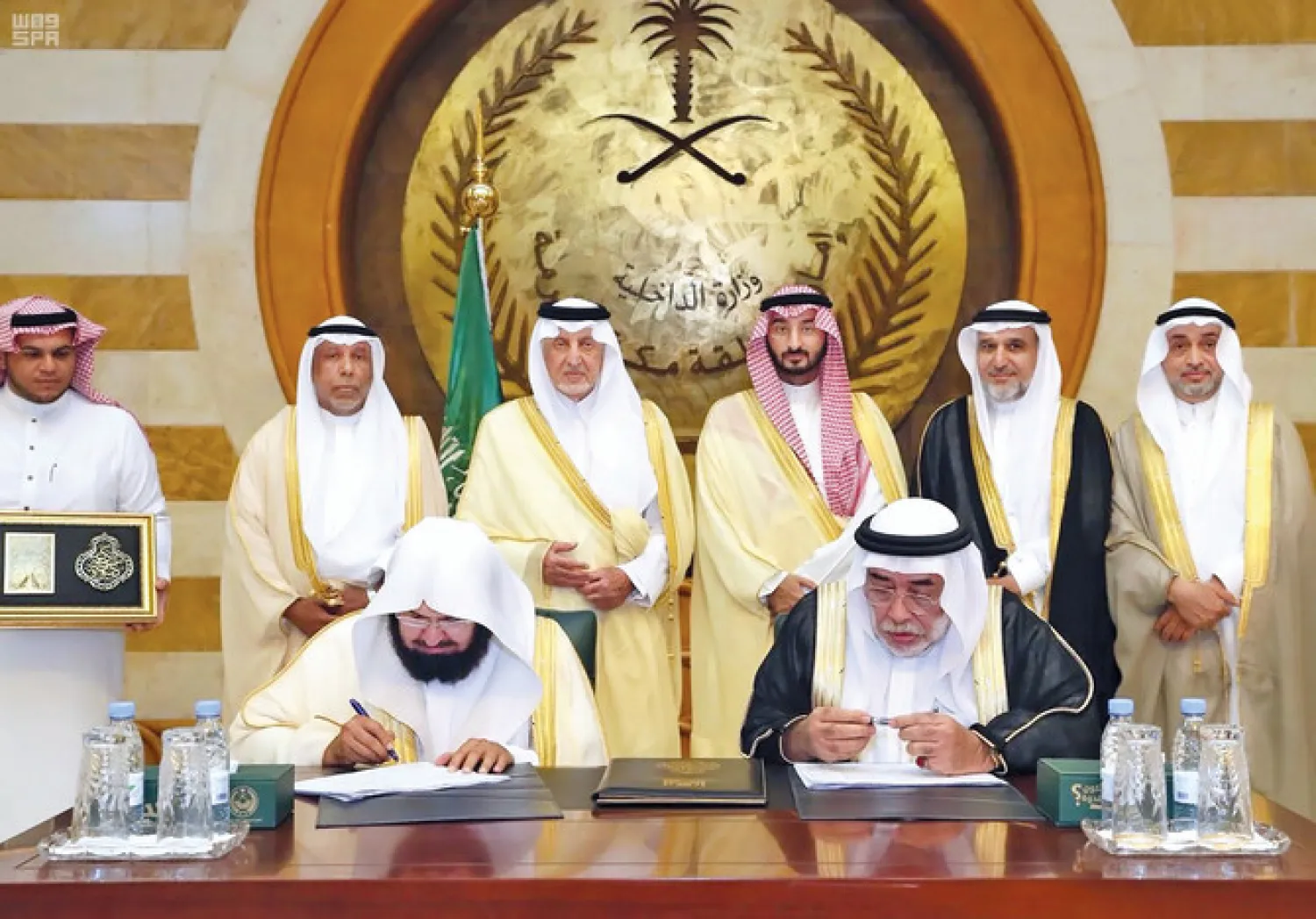Saudi Makkah Region Governor Prince Khalid Al-Faisal handed over on Sunday the new Kaaba cover, known as Kiswah in Arabic, to senior keeper of the Holy Kaaba Dr. Saleh Al-Shaibi. The handover is part of an annual custom which takes place on the 9th day of the lunar calendar month of Dhu al-Hijjah each year in Jeddah.
Kiswah is the cloth that covers the Kaaba in Makkah, Saudi Arabia, one of Islam’s holiest sites. It is draped annually, the day pilgrims leave for the plains of Mount Arafat during the Hajj.
Preparing the Kiswa takes several months and needs large amounts of precious metals and pure silk. Around 170 craftsmen are involved in the process, which passes through various stages until the Kiswa is ready. The Kiswa is usually placed on the Kaaba on the day of Arafat.
Makkah Deputy Gov. Prince Abdullah bin Bandar bin Abdul Aziz and Sheikh Abdulrahman Al-Sudais, the chief of the Presidency of the Two Holy Mosques, were also present on the occasion.
For his part, Madinah province governor Prince Faisal bin Salman, also head of the region’s Hajj Committee, stressed the importance of the role played by civil defense taskforces in avoiding dangers and keeping pilgrims out of harm’s way.
Prince Faisal has recently welcomed army commander Lt. Gen. Mazyad bin Sulaiman bin Mazyad Al-Amro, accompanied by a number of Civil Defense officials. The security officials presented a detailed review of the safety plan for Hajj pilgrimage 2018.
Headed by Lt.Gen. Amro, the team inspected Madinah’s civil defense sectors, reasserting that city taskforces are fully ready to implement the general emergency plan for Hajj.
For his part, Saudi Arabia’s Grand Mufti Abdul-Aziz ibn Abdullah Al ash-Sheikh hailed the national guest program of the Custodian of the Two Holy Mosques for Hajj and Umrah carried out by the Ministry of Islamic Affairs, Da'wah and Guidance, which attracts pilgrims every year during the Hajj season.
Scholars, officials and leaders in Islamic countries worldwide perform the Hajj pilgrimage under the guidance and sponsorship of the program.
More than 1.3 million pilgrims are expected to arrive in Saudi Arabia for this year’s Hajj season, and more than 200,000 “domestic pilgrims” have also registered for services including the “low-cost Hajj,” “affordable Hajj,” and “general program,” the Ministry of Hajj and Umrah announced on Sunday.
The number of pilgrims registered for the general program is 160,221, with 37,891 signing up for low-cost Hajj and 10,016 for the affordable Hajj.









